
Browse our fun-packed, helpful plant-based articles, and delve deeper into this healthy, sustainable lifestyle!


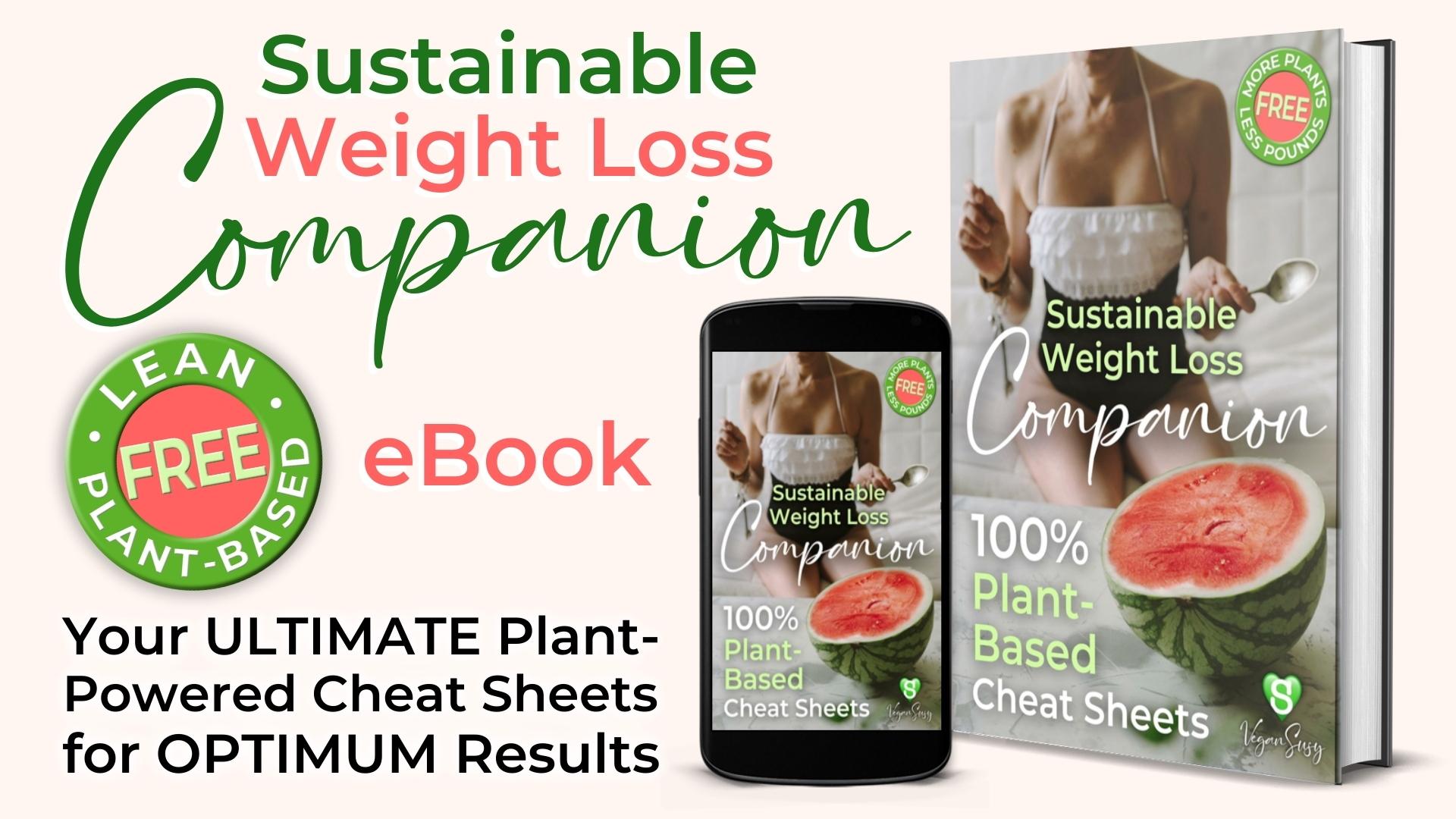
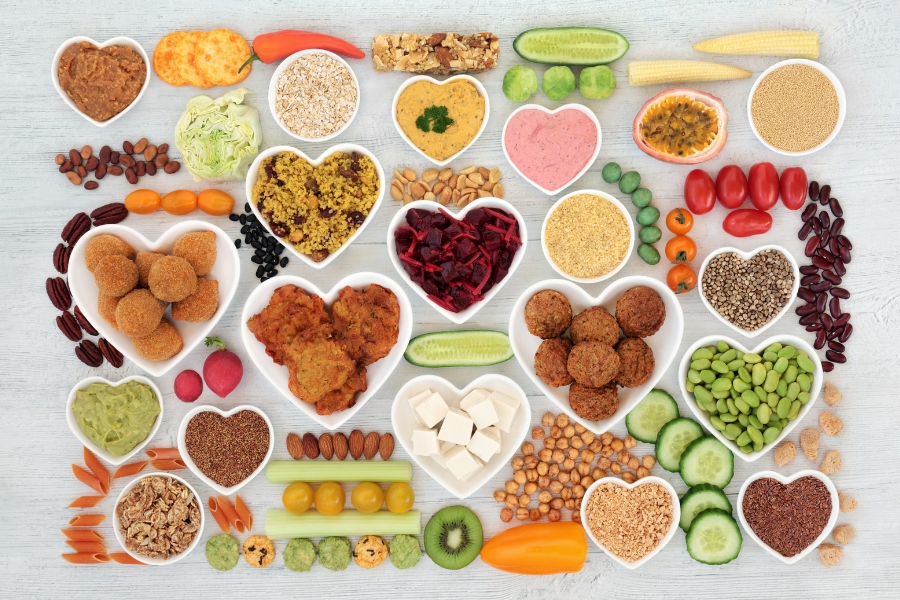
How To Go Plant-Based: Vegan Susy’s Expert Advice
Plant-Based Lifestyle Tips For Women
Author: Plant-Based Susy
Are you curious to learn how to go plant-based? Then you’ve come to the right place! In this blog, plant-based nutrition professional Vegan Susy breaks down why and how to transition to a vegan diet.
Why Go Plant-Based?
Going plant-based might seem like a daunting task at first, but once you understand the numerous benefits it offers, it becomes an exciting journey towards a healthier and more sustainable lifestyle.
Whether you want to improve your health, reduce your environmental footprint, or simply try out new culinary adventures, transitioning to a plant-based diet is a smart and fulfilling choice.
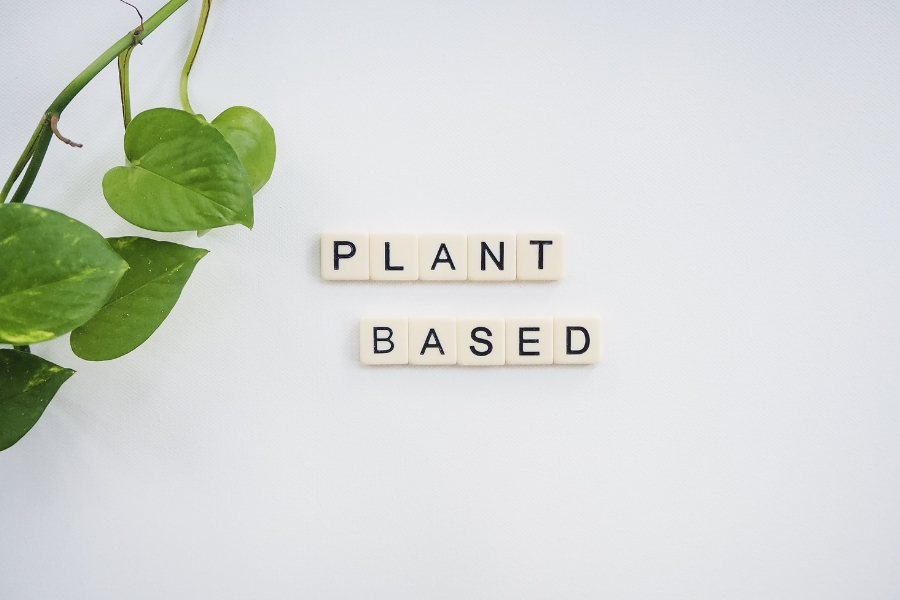
Table of Contents:
The Incredible Health Benefits of a Plant-Based Diet
The first step in going plant-based is educating yourself about the amazing health benefits of this lifestyle.
By switching to a diet centred around fruits, vegetables, whole grains, nuts, and seeds, you can significantly reduce your risk of chronic diseases such as heart disease, diabetes, and certain types of cancer.
Plant-based diets are generally lower in saturated fats and cholesterol while providing an abundance of essential nutrients, fibre, and antioxidants. This means you can nourish your body, support your immune system, and nurture your overall well-being.
Research has shown that a plant-based diet can also lead to decreased inflammation and better weight management!

Take It One Step at a Time: Your Guide to Going Plant-Based
To make the transition smoother, taking things one step at a time can be super helpful.
Begin by substituting meat with plant-based proteins such as legumes, tofu, tempeh, or seitan. Experiment with different ways of cooking and seasoning these ingredients to find flavours that excite your taste buds.
If you're new to the plant-based lifestyle and wondering how to start becoming vegan, you could begin with one or two meatless days a week and gradually increase as you become more comfortable and confident in your choices.
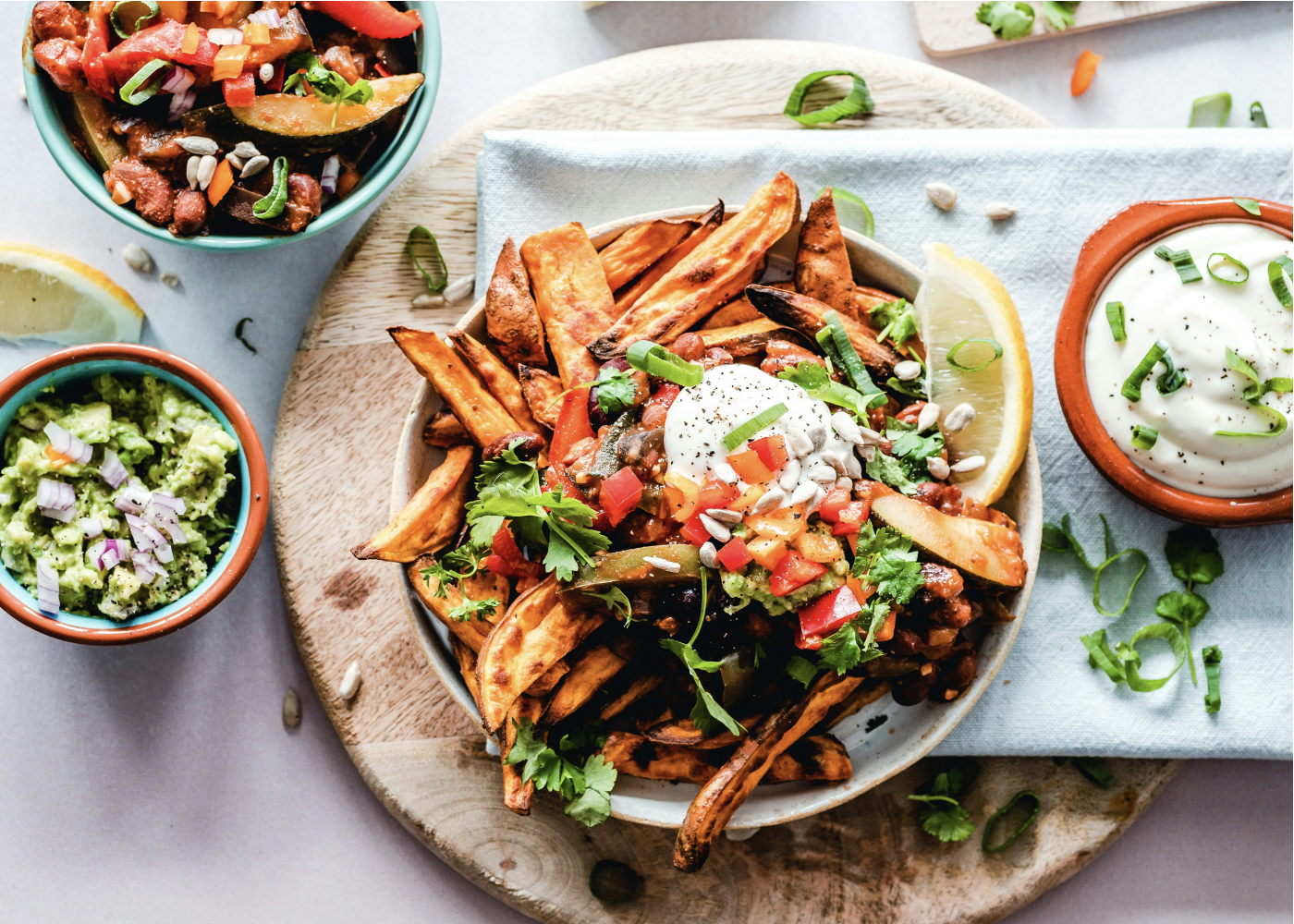
The Joy Of Experimenting With New Foods
Another approach is to focus on diversifying your plate with colourful fruits and vegetables. By adding a variety of brightly coloured produce to your meals, you can ensure you're getting a wide range of vitamins, minerals, and phytonutrients.
To make the transition even more exciting, explore different cooking techniques and experiment with new recipes. Plant-based cuisine has evolved tremendously over the years, and there are endless options to choose from.
Try your hand at making delicious plant-based burgers, whip up creamy vegan desserts, or explore traditional dishes from various cultural cuisines that are naturally plant-focused.
Here on the Vegan Susy website, you’ll find a wide variety of delicious plant-based recipes to try at home! You get unlimited access to over 100 Free Recipes Here ➡️
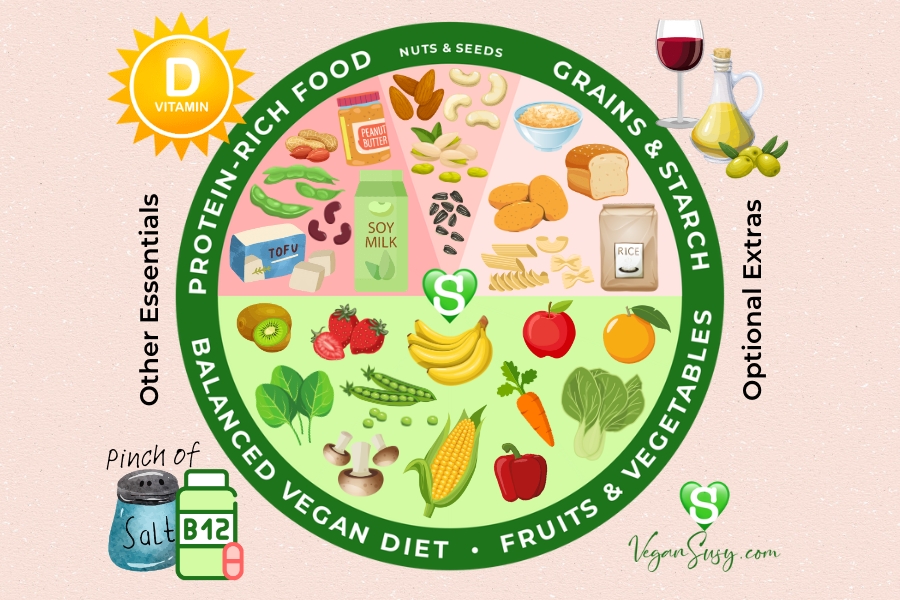
Don’t Forget The Essential Nutrients
When planning how to go on a vegan diet, it's important to pay attention to your nutrient intake. While plants can provide an abundance of nutrients, there are a couple of key ones that may require special attention.
Vitamin B12, for example, is mostly found in animal-based foods, so it's important to consider supplementation or seek out fortified foods. Interestingly, it's not exclusive to those embracing a plant-based lifestyle; many omnivores, even in the developed world, also face B12 deficiency. Therefore, supplementation can be beneficial for individuals, regardless of their dietary preferences, ensuring they meet their nutritional needs.
Omega-3 fatty acids are typically found in fish but can be obtained from plant sources like walnuts, chia seeds, and flaxseeds. It's important to include these in your diet to support brain health and reduce inflammation.
Notably, opting for plant-based sources carries virtually no risk of mercury contamination, a concern often associated with fish consumption. This makes plant-based sources a safe and sustainable choice for obtaining essential omega-3 fatty acids.
Overcome Challenges Easily!
There can be a few minor challenges when initially going plant-based. When dining out or attending social gatherings, it can be useful to communicate your dietary preferences to others. It's also helpful to have a few go-to dishes or restaurants that offer delicious plant-based options.
While plant-based diets can be extremely nutritious, as mentioned above, it's important to pay attention to specific nutrients such as vitamin B12, iron, and omega-3 fatty acids. Consider consulting with a healthcare professional, dietitian, or plant-based nutrition professional, like Vegan Susy, to ensure you're meeting your nutritional needs.
Cravings for familiar foods are normal, especially during the transition to a plant-based lifestyle. Combat this by finding plant-based alternatives that satisfy those cravings, such as plant-based veggie burgers or dairy-free ice cream and chocolate.

Feel Great By Helping The Planet and Animals
Choosing a plant-based diet isn’t all about health, of course - you will also be helping to reduce greenhouse gas emissions, preserve water and land resources, and promote sustainable food production.
Embracing a plant-based lifestyle aligns with ethical and compassionate values by reducing animal exploitation and promoting the well-being of animals.
Take the time to educate yourself about food systems, the environmental impact of animal agriculture, and the importance of supporting local and organic produce. By making mindful choices, you can contribute to a healthier planet and inspire others to do the same!
Enjoy The Transformative Experience
Embracing a plant-based lifestyle can be a transformative experience filled with delicious meals, new flavours, and a renewed sense of well-being. It's an opportunity to reconnect with nature, nourish your body, and leave a positive impact on the world.
So, take that first step towards a plant-based journey today and discover the countless benefits waiting to be explored!
Frequently asked questions
What are the main health benefits of a plant-based diet?
A plant-based diet can lower the risk of heart disease, diabetes, and inflammation while supporting weight management and overall well-being.
How can I start transitioning to a plant-based diet?
Start gradually by replacing meat with plant-based proteins, adding more fruits and veggies, and experimenting with new recipes.
Do I need supplements on a plant-based diet?
While a well-planned diet provides most nutrients, B12 and omega-3 supplements may be needed for optimal health.
How can I handle cravings when switching to plant-based eating?
Find plant-based alternatives to your favorite foods, like veggie burgers, dairy-free ice cream, and plant-based cheeses.
Does going plant-based really help the environment?
Yes! It reduces greenhouse gas emissions, conserves water, and promotes sustainable food production, benefiting the planet.
💚 "Happy Plant-Based Eating!" 💚

Plant-Based Susy
Plant-Based Nutrition Professional & Weight Loss Coach
Empower Yourself: Embark on a Delicious Fat Loss Adventure

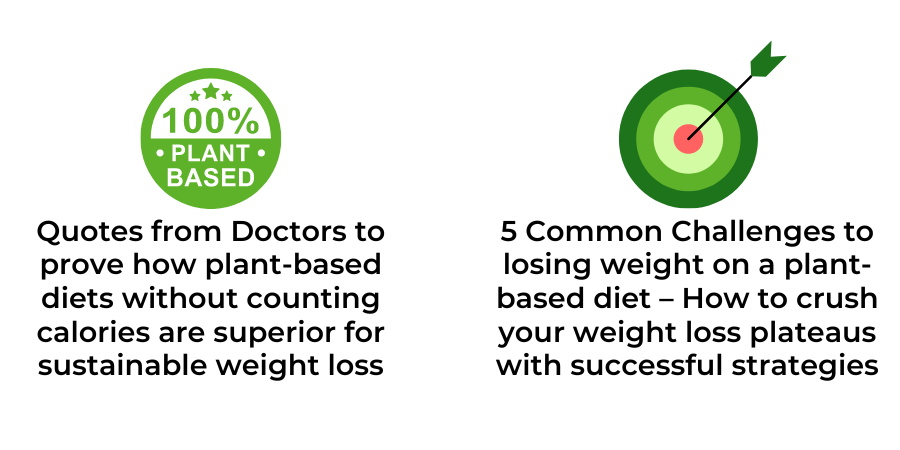
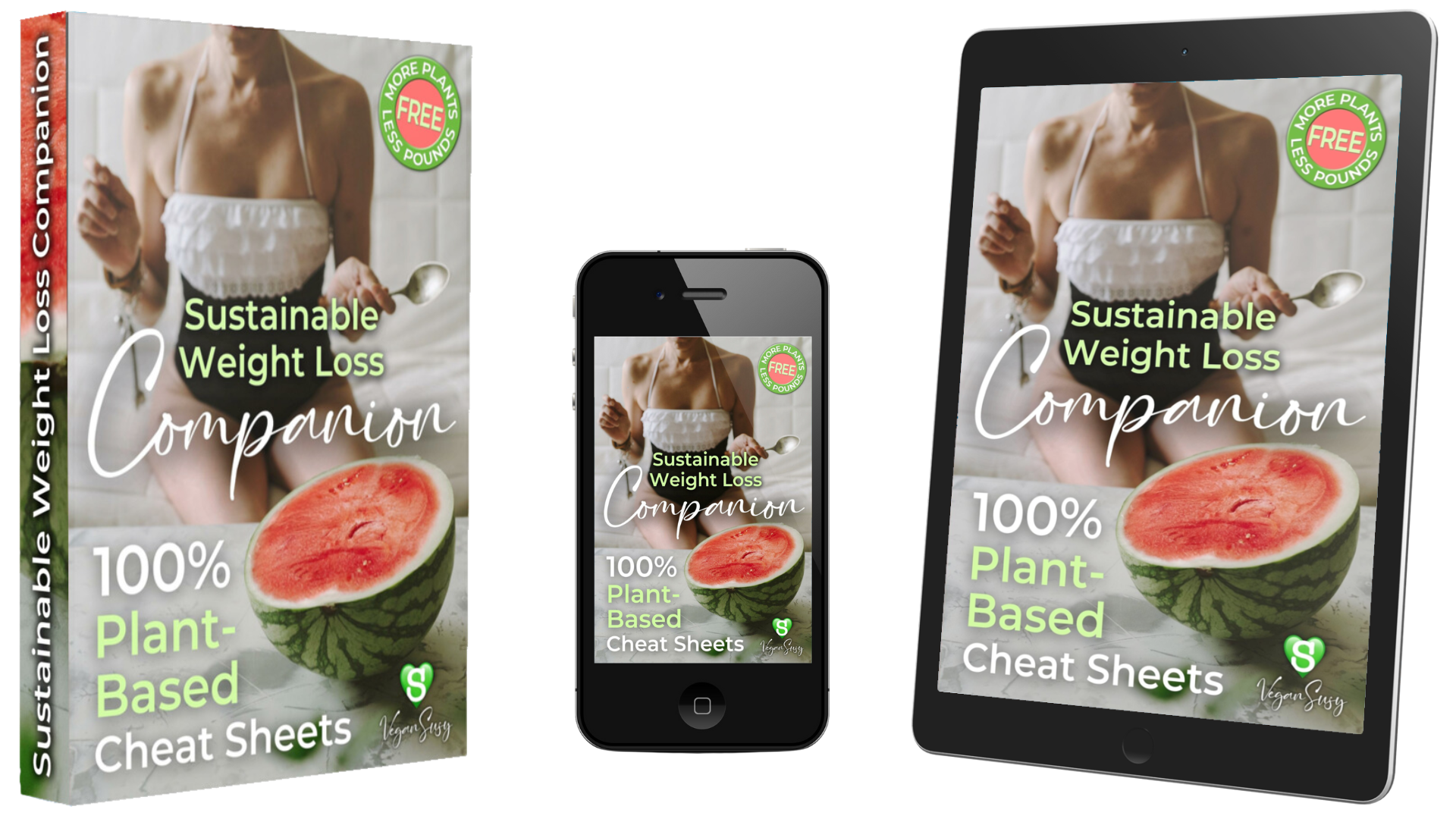
🍉 Get Ready to Jump Start Your Fitness Goals AND DISCOVER A HEALTHIER YOU!
🍉 Let's Make Your Fat Loss & Optimum Health Journey a Delicious Success Story!
🍉 Get The FREE Sustainable Weight Loss Companion eBook and CHEAT SHEETS!
More Free Resources
Unlock Your Transformation Today!
© 2025 VeganSusy Ltd. All Rights Reserved

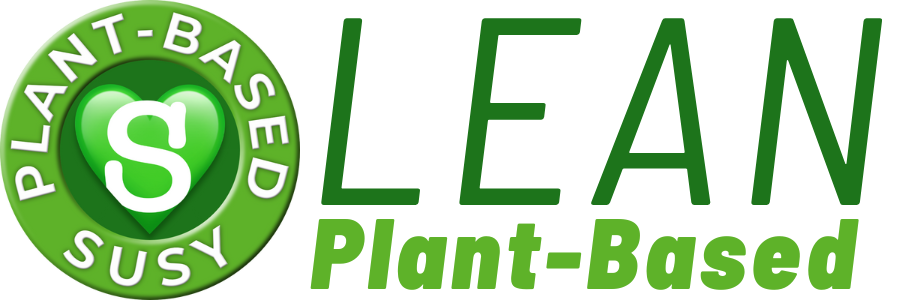
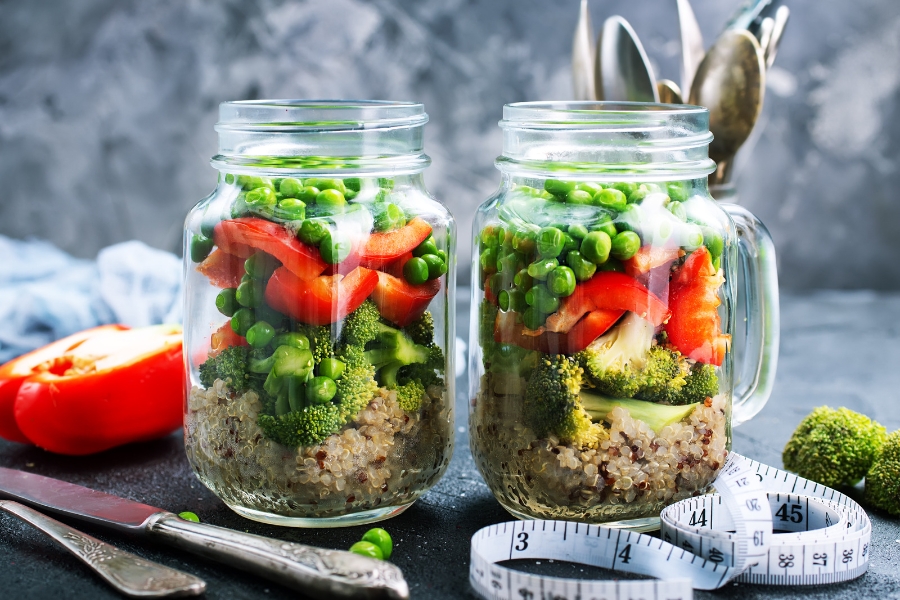
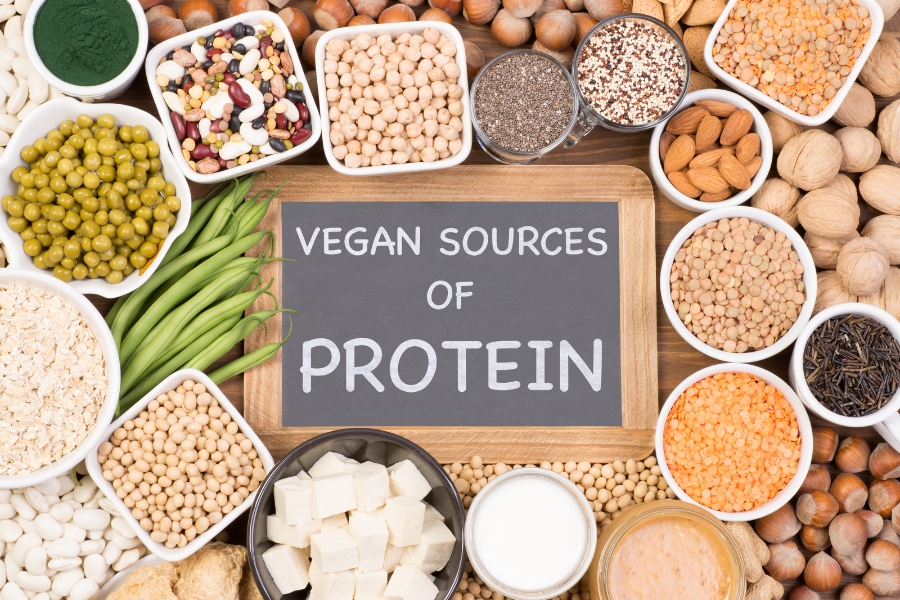

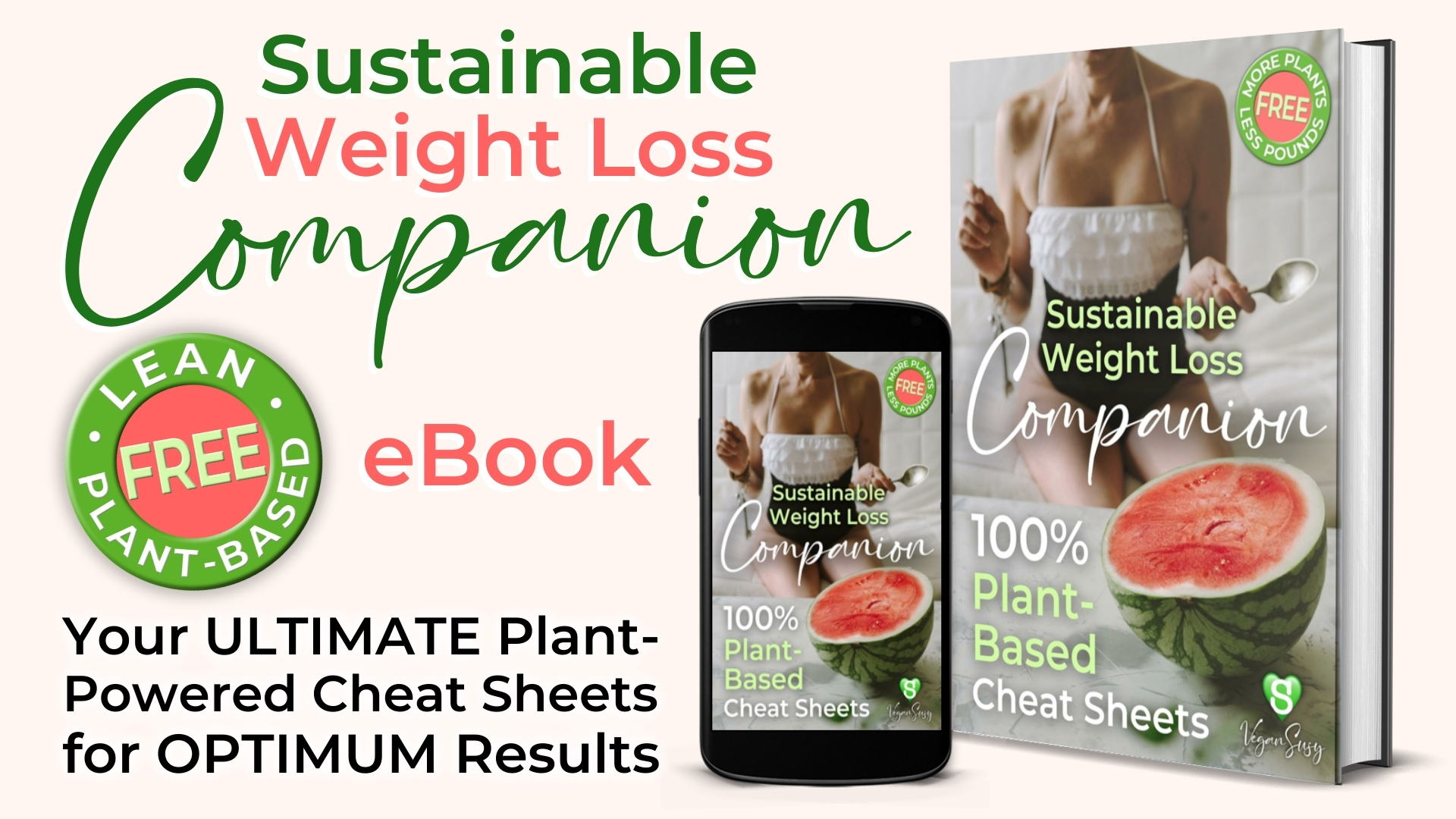





Facebook
Instagram
Youtube
Pinterest